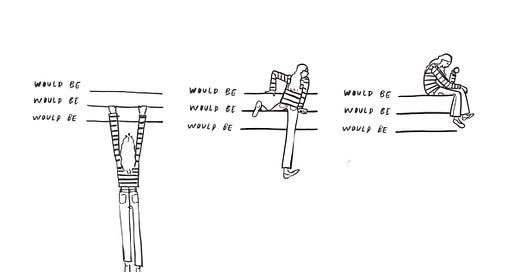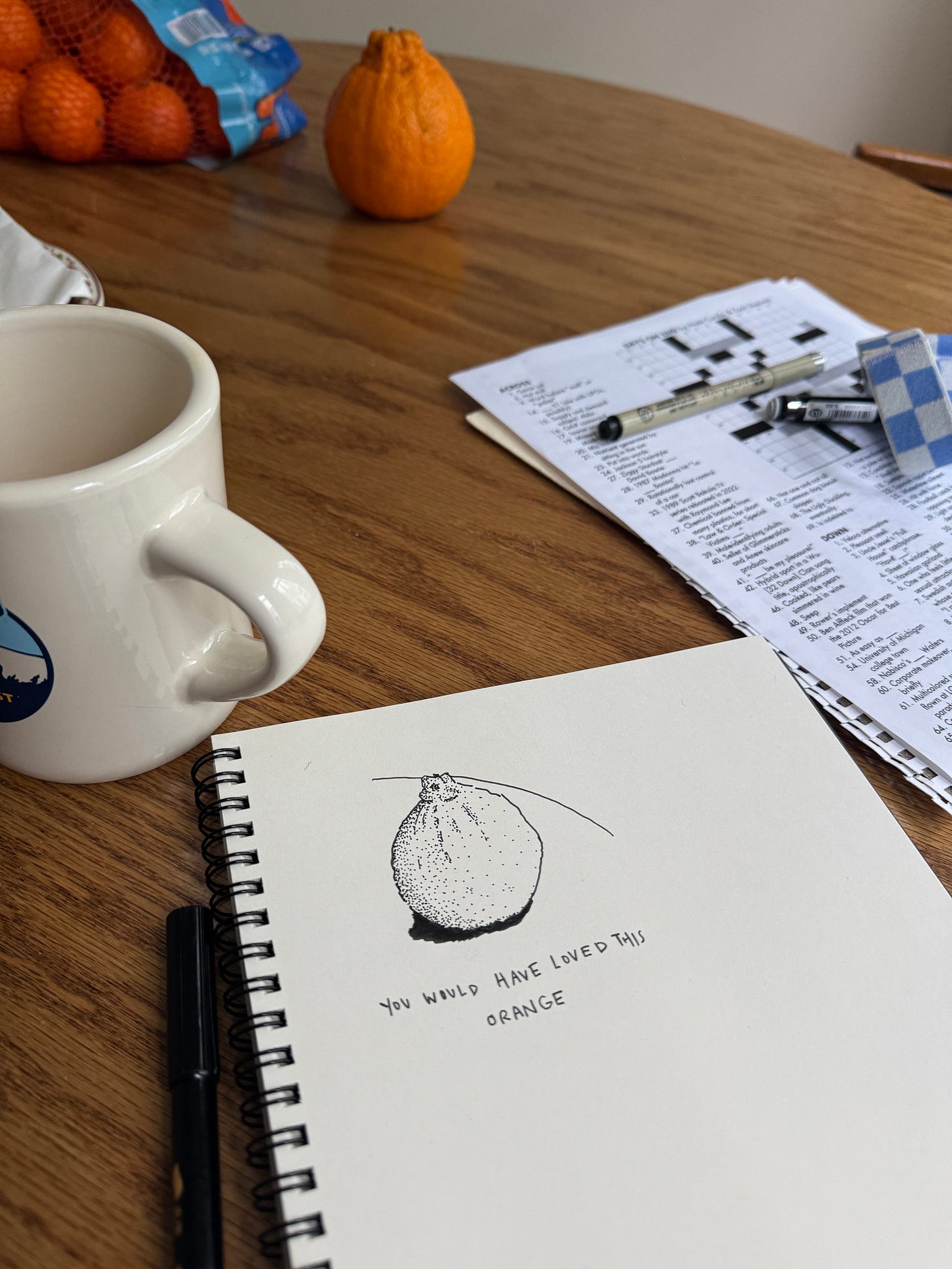Sad Girls Club: Conditional Perfect
A grammatical quandary about what Would Have Been
In grief, you spend a lot of time in the conditional perfect tense. This is the ironically named term for that which “would have been.”
I found myself going down a rabbit hole on this grammatical paradox last week on what “would have been” mine and Alex’s first wedding anniversary.
The tense is made up of two components with names ripe for over-analysis: The Conditional Mood + the Perfect Aspect. If x hadn’t happened (conditional mood), then y would have happened (perfect aspect).
There are infinite uses for the conditional perfect when you lose someone—birthdays they would have had, trips they would have come on, sandwiches they would have loved, Beyonce tickets would have bought—but we tend to leave the conditional mood unspoken. The “if Alex hadn’t died” part is implied. Maybe that’s because calling this part of the sentence conditional, an “if”, implies that there is a world in which he might still be alive. It opens up all the other conditions that we’ve all been working hard in therapy to disavow because there are no other conditions.
So then you’re just left with the “perfect aspect”. Coincidentally the worst word for such a hypothetical that by definition will never be true.
Perfect doesn’t actually mean ideal. It means completed, coming from the Latin perfectum meaning “to complete”.
Reminds me of a very Alex quote, a derivative of Voltaire: “Never let perfect be the enemy of good enough”.
If Alex were still alive, I can’t say our first year of marriage would have been perfect. It probably would have been hard. But it would have been good enough.






